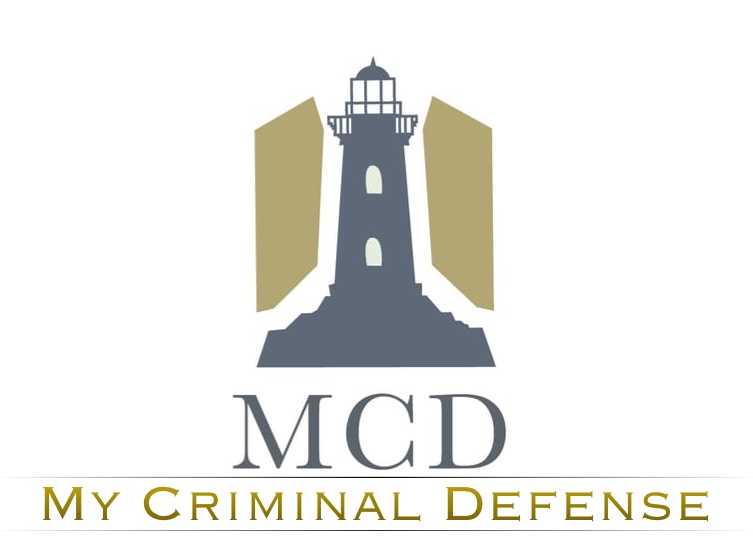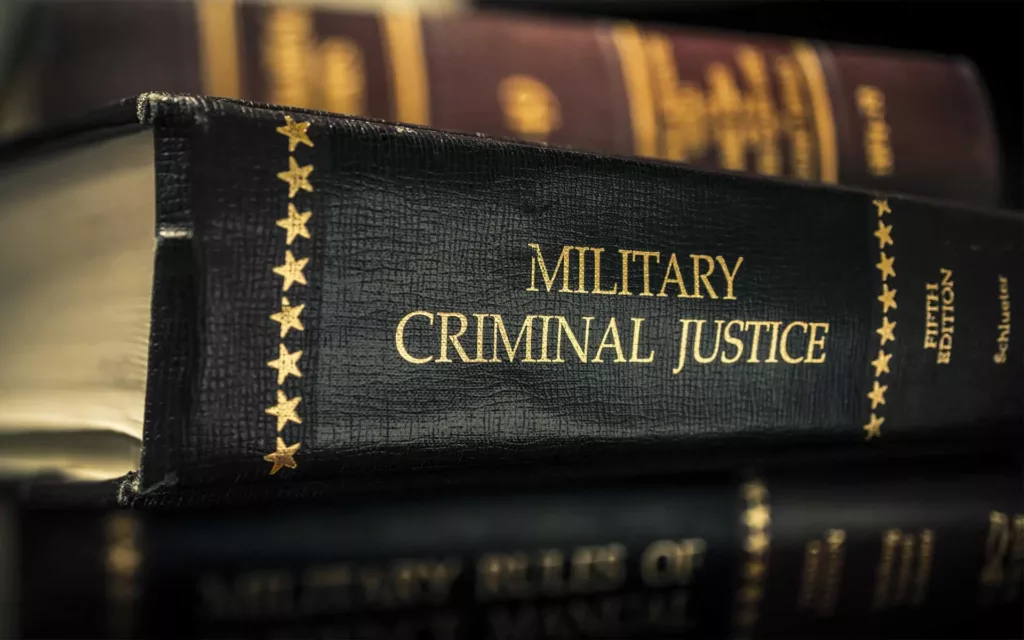[column width=”1/1″ last=”true” title=”” title_type=”single” animation=”none” implicit=”true”]
Military Diversion San Diego
Penal Code section 1001.80 also known as the “Pre-Trial Military Diversion San Diego Program” was enacted in April of 2015 to give active duty and veterans of the armed forces who have been charged with misdemeanors an opportunity to enter an appropriate treatment program to receive help for PTSD, substance abuse or any other mental health condition resulting from their military service. Interestingly, the law does not disqualify service members or veterans who have received bad conduct, dishonorable or other than honorable discharges. We have to look to our legislature to amend this law to make it clear that a trial court cannot discriminate against veterans with less than honorable discharges.
This is a very important point, because so many of these service members or vets may incorrectly believe they are not eligible for treatment under Penal Code section 1001.80, now simply called “ the Military Pre-Trial Diversion Program”, because they have received negatively characterized discharges. In fact, they are just as eligible as any other service member or veteran who have received honorable discharges. The problem is that an individual judge may allow his or her own biases and prejudices to deny access to a dishonorably discharged service member or veteran. You cannot blame the judge who narrowly construes PC 1001.80 when he wants to exclude a veteran with a bad conduct discharge, because the statute consistently states that a court “may” exercise its discretion to exclude an otherwise completely eligible veteran.
“(b) If the court determines that a defendant charged with an applicable offense under this chapter is a person described in subdivision (a), the court, with the consent of the defendant and a waiver of the defendant’s speedy trial right, “may” place the defendant in a pretrial diversion program, as defined in subdivision (a).”
The drug diversion statute, enacted in 1972, is very clear as to which persons are eligible for drug diversion and what crimes may disqualify a person from participating in the drug diversion program.
We understand why the language of a statute is so important when we look at People v. Duncan (1990) 216 Cal.App.3d 1621. In Duncan, the court denied the defendant’s application for drug diversion, turning to a basic rule of statutory construction. “When construing a statute, a court must first “examine the words at issue to determine whether their meaning is ambiguous. (internal quotation marks omitted.) It is settled law in California that if statutory language is “clear and unambiguous there is no need for construction, and the courts should not indulge in it.” (citations omitted.) “Our courts have declined to apply the plain meaning of a statue only “when it would inevitably have frustrated the manifest purposes of the legislation as a whole or let to absurd results.” (citations omitted.) (Duncan at 1623.)
Most of us would cheerfully applaud a judge who denies this Military Diversion San Diego program to a veteran who has received a bad conduct discharge. But most of us who have served realize that the circumstances upon which a service member or veteran may get a bad piece of paper are so varied and different that a judge unknowingly may be making a huge mistake by denying access to a veteran with a bad conduct or other negatively characterized discharge. Remember, each case turns on its own facts. The facts that lead to a bad conduct or other than honorable discharge could be interpreted in different ways by different people. A commanding officer who has a sailor arrested on charges of embezzlement of military supplies could be relying on insufficient facts. Not all investigations have not been done with equal clarity and accuracy. Sometimes, mistakes are made, either through haste or indifference. An incriminating investigation could lead to a general courts-martial and, if the members of a military jury, rely on the incorrect, incomplete, or insufficient facts of a bad investigation, the members may return a guilty verdict in a case where the service member is really innocent. Then a military judge must pass sentence. Aside from various punishments like prison time, a military judge has the discretion to discharge the guilty service member with a bad conduct discharge in a special courts-martial or a dishonorable discharge in a general courts-martial. A few years later, this service member suffers a blackout and passes out while driving his truck. He ends up in a ditch and has broken his neighbor’s fence. He is suffering from a chemical dependency problem that has resulted from multiple combat deployments.

CALL US NOW FOR A FREE MILITARY CONSULTATION
1-619-231-2151
Military Diversion San Diego
The District Attorney has insufficient evidence to charge him with drunk driving, because police were not called out to investigate at 3 in the morning. However the DA charges the service member with misdemeanor vandalism. Not a terribly serious crime, but the service member carries a top secret security clearance in his present job which will be revoked if he is convicted of this crime.
The judge is given the case file and immediately notices that the veteran was discharged with a bad conduct discharge. Right off the bat, this judge may be biased against the veteran and completely deny him any chance of participating in a career-saving program like that offered in Penal Code section 1001.80.
One of the problems we presently face every time a service member or veteran applies for relief under Penal Code section 1001.80 is the amount of discretion a trial court has to refuse a service member or veteran access to the Pre-Trial Military Diversion Program. The way the law now reads, a trial court has complete discretion to deny or allow eligible service members or veterans access to the program:
“(c) If the court determines that a defendant charged with an applicable offense under this chapter is a person described in subdivision (a), the court, with the consent of the defendant and a waiver of the defendant’s speedy trial right, may place the defendant in a pretrial diversion program, as defined in subdivision (k). “ (emphasis added.)
When you compare this with the provisions of the drug diversion law, it is manifestly clear that the drug diversion law, in existence since 1972, is much clearer on the eligibility provisions of that law. There are certain enumerated drug violations which are specifically stated in drug diversion that guide the trial court as to when a defendant is or is not eligible for participation in drug diversion. For example, a simple violation of Health and Safety Code section 11377 which is unlawful possession of a controlled substance is one of those drug offenses which are listed as eligible offenses for drug diversion. A violation of Health and Safety Code section 11378 which applies to drug offenders with the intent to sell or distribute the drug to others is not listed and therefore it is clear that a person who possesses an illegal drug with the intent to sell or distribute it to others in ineligible to participate in the drug diversion program.
The California legislature needs to be amended to clarify numerous instances of ambiguous statutory language which gives a trial court too much discretion to admit or reject service members or veterans who might otherwise be eligible to participate in the Pre-Trial Military Diversion Program.
This initial article is introductory in nature and is therefore designed solely to reach active duty commands and veteran organizations in California who are unaware that this important legal remedy exists and can make a huge difference in the life of a service member or veteran who has suffered mental health problems as a result of his or her military service.
Finally, and this last point really addresses the State of California in particular, there are many different approaches that the superior courts in California have taken to implement Penal Code section 1001.80, the “Pre-Trial Military Diversion Program”. I have seen at least four different methods of applying the eligibility provisions of this statute and each different method was applied by a different superior court. The need for uniformity and clarity in Penal Code section 1001.80 is very compelling.
It is my goal to bring a uniform program to the attention of the California Judicial Council (CJC). The CJC is responsible ultimately for promulgating judicial policies to guide trial courts in following judicial and statutory law. The CJC must advise the California legislature to reexamine the statutory language of Penal Code section 1001.80 and make appropriate revisions to reduce the ambiguity and lack of clarity which presently make it very difficult for trial courts to implement the new law in accordance with legislative intent.
In the end, law enforcement officers, probation officers, prosecutors, defense counsel, military legal counsel, senior military officers, mental health professionals, active duty and veteran organizations will all have to work together to identify potentially eligible participants and make sure they are made aware of their legal right to seek admission to the program.
Trial courts must refrain from allowing their personal beliefs to disqualify veterans this new law was designed to help. The trial judge must try as hard as she or he can to remove all biases toward veterans with negative discharges when determining eligibility for the Pre-Trial Military Diversion San Diego Program. I have personally witnessed judges refuse to admit a veteran because the veteran was discharged with a less than honorable discharge or did not have a meritorious service record.
Program participants should receive fair and equitable treatment regardless of their county of residence, regardless of the quality of their service record, regardless of whether they were discharged honorably or dishonorably—-as long as the service member or veteran can show that he or she is suffering from a mental illness resulting from their military service. I have seen some veterans who commit very serious misdemeanors get into this program because of a stellar service record while others who commit much less serious crimes get rejected because they were kicked out of the Marines with an “OTH” (Other than honorable discharge). Now, does that seem fair and equitable? This is a compelling reason for why this law needs to go back to the legislature for badly needed clarification.
How can the California Judicial Council become more actively involved in making this law more accessible to greater numbers of veterans and service members? The CJC creates policy for superior courts in the State of California? Right? CJC must consult professionals inside and outside the military to find ways to create a more uniform and reliable implementation of this law. The CJC can then create an online and offline manual for all superior courts to follow so that this new diversion law can be implemented with minimal bias and prejudice that an unguided trial judge can use to deny the program to an otherwise eligible service member or veteran.
We also have to remember that many states look to California to set trends in the creation of new law. Traditionally, other states have looked to California to take the lead in tackling difficult legal problems and find creative and effective solutions that serve as models for other states to follow.
The problem of discretion vested in the trial court is by no means a new one. The vast majority of laws in California penal statutes are rife with all kinds of prejudice and unfairness. Again, each case turns on its own facts. So, almost by definition, a trial court has an incredibly difficult task of applying law to fact. The trial court is not to blame. The appellate court is not to blame; however, the legislature needs to step up and accept responsibility for the vagueness that haunts the penal system.

CALL US NOW FOR A FREE MILITARY CONSULTATION
1-619-231-2151
Military Diversion San Diego
If we use Penal Code section 1001.80 as a continuing example, we can see how the legislature, either willfully or negligently, has failed to give proper guidance to trial courts in determining who gets into the program, under what circumstances are they allowed to continue or be terminated from the program and how institutions, organizations and other providers of services play a role in these factors.
Let’s look at a hypothetical case of an active duty service member who has returned from several combat deployments to Afghanistan with a severe case of Post-Traumatic Stress Disorder. The first responsibility of a trial court is to determine whether or not the service member suffers from a qualifying mental health disorder. The statute states: “The defendant may be suffering from sexual trauma, traumatic brain injury, post-traumatic stress disorder, substance abuse or mental health problems as a result of his or her military service. The court may request, using existing resources, an assessment to aid in the determination that this paragraph applies to a defendant.”
The term, ‘may’, creates a tremendous potential for the unfair application of this wonderful new law. The intent of the legislature is very benevolent and praiseworthy, but one almost gets the sense that the legislature does not want to accept responsibility for what happens if a few psychologically unstable program participants end up killing or hurting people. When a law has ‘may’ written into it as many times as it is written into Penal Code section 1001.80, a trial court faces an almost impossible challenge to make sure it applies the law fairly and equitably.
The law must be amended to change ‘may’ to ‘must’ in many of this law’s sections. For example, the law should read, “(1) the defendant ‘must’ be suffering from sexual trauma…as a result of his or her military service. The small change of may to must relieves a trial court of a lot of uncertainty. Now, that does not mean a veteran will be admitted into the program if an assessment demonstrates the existence of a mental health problem, but it certainly removes a lot of ambiguity and gives mental health professionals more guidance in developing their mental health assessments or evaluations.
I served in the United States Navy for a little over three years on active duty. I have seen first-hand how traumatic events in a military mission can create terrible mental health disorders.
This is the first of a series of articles I plan to write on this new that was meant to offer treatment without legal consequences to deserving service members or veterans who commit misdemeanor or less serious felony crimes as a result of mental illness they have suffered from military service.
I want to leave the reader with a challenging assignment. Please read Penal Code section 1001.80 in its entirety and prepare some ideas on how the legislature should change this law to make it fairer and more reliable. I want to see what kind of responses I receive. I often get my very best ideas from people who read and criticize my articles. I welcome suggestions from anyone willing to offer them!

CALL US NOW FOR A FREE MILITARY CONSULTATION
1-619-231-2151
Military Diversion San Diego
[/column]






